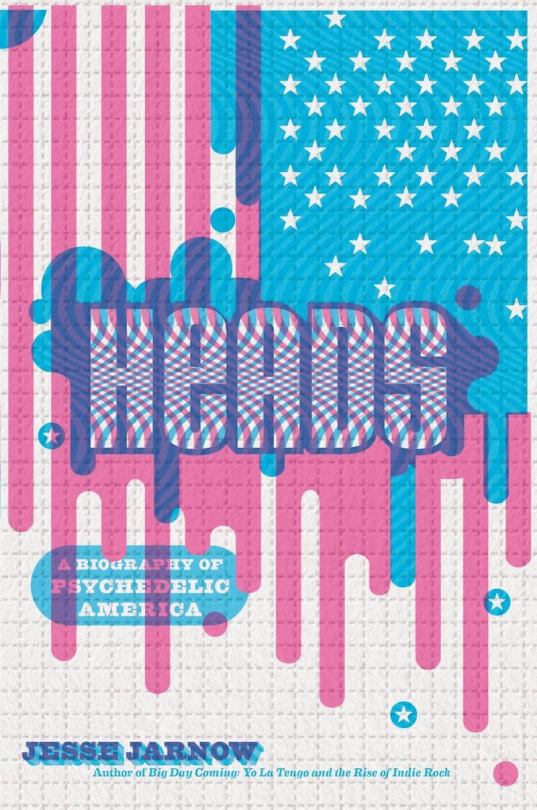#jesse jarnow
Text
peace to john sinclair! dope & fucking in the streets, too, while we're at it.
—Jesse Jarnow, April 2, 2024
3 notes
·
View notes
Text

Sloppy Heads - TV Eye, Ridgewood, New York, January 27, 2023
Is there a new Sloppy Heads record out? Yes, there is a new Sloppy Heads record out! Sometimes Just One Second just dropped on the Shrimper label and — dare I say it — it's the best Heads yet! Ariella Stok, Bill the Drummer, and Jimmy Jumpjump (AKA your friend and mine Jesse Jarnow) have crafted a sprawling masterpiece this time around: 75 minutes of sweet jams, fuzzed-out pop, cracked balladry and even a delicious Dead boogie.
Extra props to Yo La Tengo's James McNew, Ladybug Transistor's Gary Olson, Pee Wee's Playhouse artist Gary Panter and legendary animator Al Jarnow for making this a truly special collection. For a little more detail, check out this recent Jarnow + Jarnow Q&A on Aquarium Drunkard.
I like the RIYL that came along with the Sometimes Just One Second promo, so I'll just reprint it here:
RIYL: WFMU, Mutant Sounds blog, Half Japanese, Yo La Tengo, The Fugs, Seastones, Kluster, Crazy Horse, The Godz, Yoko Ono's Approximately Infinite Universe, Bonzo Dog Band, Pep Lester, Spotted Dick, X, Jefferson Airplane, The Vaselines
You like all that, don't you?! I do. I also like this short live video via the great Roolin YouTube channel of Sloppy Heads out in Ridgewood. Loose as a goose, right as rain.
8 notes
·
View notes
Text
Spittin' Wicked Randomness with Small Professor
or, Bizarre Rides II the Pharthest Cyde;
or, A beginning doesn’t need an ending, only a portal

Make your body a temple. Make your home a shrine. You are a God, live like one!
—Timothy Leary, “You Are A God, Act Like One!” (1967)
Psycholinguistic structural confusion leads to insidious beat wrecking missions and continuous speech recognition, prescription, vocal anecdotal object impressions…. Synergistic sample arrangements.
—Jungle Brothers, “Trials of an Era” (1993)
EXORDIUM
I long for the anonymity the internet once provided. Everyone was faceless. Vacant visages—not even an avatar. I’ll often try to remanufacture this premillennial experience for myself. I deliberately avoid seeking images to accompany the names I see on the screen. Many people nowadays—most people, the writer bemoaned—make this nearly impossible. Vanity of vanities—all is vanity! But I do try, I do. I look away; I increase the scroll speed; I squint to blur and becloud. Like Iris DeMent desired, I try to let the mystery be. On Rakim’s plodding “The Mystery (Who Is God?),” the God MC suggests you can solve the mystery if you realize the answer revolves around your history. But I need the mystery to stay intact. So many years on, and I’m still figuring out da mystery of chessboxin’, looking all the way back to when Wu-Tang was in black hoodies on the man-sized chessboard—cloaked rooks shouting peace to all the crooks with bad looks. “You cannot hook up a 100 million years of sensory-somatic revelation to your puny, trivial personality chess board,” so says Timothy Leary. I’m inclined to agree.
Aside from his music, I’ve known Small Professor—Jamil Marshall, if we split the veil—only through his words, through his text on my chosen screens: pixelated patterns of character images. But late last year, I stumbled across an image of him appearing not unlike a cloaked rook. Draped in a black robe, Small Professor appeared beside his Wrecking Crew brethren as a Sith Lord. The occasion was a Halloween performance at Cratediggaz Records in South Philly. Small Professor’s face was hidden, and so I could fuck with this type of qualified exposure. His shrouded appearance elevated my intrigue rather than diminished it. This was no flashbulb, soul-capturing, photographic evidence of existence; this was no selfie self-absorption; this was simply some spooky shit.

Of the many messages that Small Professor measures out into the ether[net], the ones that have frequently caught my attention make some mention of hallucinogenic drugs. Here again, we have [e]strange bedfellows—that being technology and drugs. Twinned conceptualizations: drugs as teknology; teknology as drugs [scanned as tricknology, too, two]. Programming in the Silicon [Uncanny] Valley with the capital-I Internet reformatted as a Third [Eye]nternet. You scream as it enters your bloodstream. “Build, elevate to a higher comprehension, / Let your third eye rise above evil interventions,” if we’re properly tuned in to the Jungle Brothers’ “Troopin’ on the Down Low.” Teknology and drukqs might be more familiar than we (Eye) thought.
As we know from Jesse Jarnow, psychedelic saints were known as “heads,” which, underground hip-hop stalwarts of a certain age will wreckonize as an honorific for their own dedication to a way of life and listening. Stewart Brand, author and publisher of the Whole Earth Guide, would later speak of computers and online communities as the most auspicious collective force “since psychedelics.” Hua Hsu brings this to my total attention, but with my full cooperation (word to Def Squad), so there’s a few more things I’d like to mention. Computer science research centers saw networking and information sharing as devout acts “borrowed directly from Deadhead communalism.” Again, not dissimilar from the tape trading so crucial to the spread of this thing of ours called hip-hop. John Morrison writes of how “hip-hop owes much of its early development and propagation to an underground economy,” to the “recording and circulation of cassette tapes of park jams, live battles, DJ sets, and radio broadcasts” that brought a burgeoning and insurgent art form to the masses. The backchannels and clandestine conduits that made this dissemination possible suggest a secret organization with figures like Geechie Dan and Elvis “The Tapemaster” Moreno as its stewards. These cross-cultural, cross-generational connections exist despite Jerry Garcia’s abhorrence of rap as a legitimate musical form [see below: “Deadhead” diss-poem]. Small Professor centers himself within the radial lines of this complex mandala. His production isn’t strictly for the psych heads, or the hip-hop heads—his musick is For the Headz at Company Z.
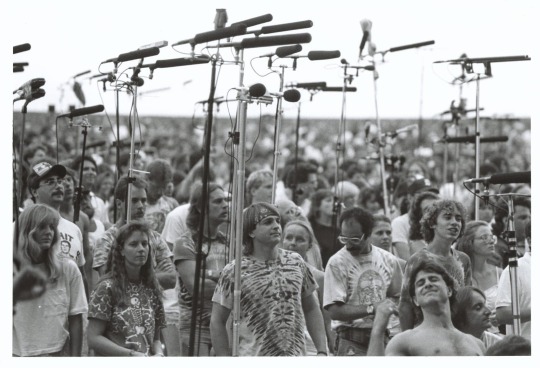
Small Professor understands the possibility and catalytic practices of rappers, much like William S. Burroughs did: “With computerized tape recorders & sensitive throat microphones we could attain insight into the nature of human speech & turn the word into a useful tool instead of an instrument of control in hands of a misinformed and misinforming press.” Somewhere you can hear the echoing call of Newwwspaaaaperrrr from the Jungle Brothers’ “Book of Rhyme Pages,” a song with a prophetic register, a song that reads.
In Burroughs’ essay “Academy 23: A Deconditioning,” which appeared in the San Francisco Oracle (c. 1966-1968), the beatific junky proposes that “academies be established where young people will learn to get really high…high as the Zen master is high when his arrow hits a target in the dark…high as the Karate master when he smashes a brick with his fist…high…weightless…in space.” As high as Wu-Tang get, I might add, Allah allow us pop this shit. Burroughs believes it’s “[t]ime to look beyond this cop rotten planet.” The students in Academy 23 “would receive a basic course consisting of training in the non-chemical disciplines of Yoga, Karate, prolonged sense withdrawal, stroboscopic lights, the constant use of tape recorders to break down verbal association lines. Techniques now being used for control of thought could instead be used for liberation.”
Small Professor is already present in such an academy, his “lab”—be it Albert Hofmann’s Sandoz Laboratory or RZA’s antediluvian lab. Like Bobby Digital, Small Professor experiences the “Lab Drunk,” the studio stupor: Stumbled into the lab half-drunk—honey-dipped, stinking blunts. The neural activity of Madlib’s psilocybin; the mind expansion of MKUltramagnetic; outlaw practices: tripping on LSD or sampling on an MPC—same diff, really. “The experience,” Leary wrote in the East Village Other, “must be communicated, harmonized with the greater flow.”

PART I
[December 23, 2023 | 9:10 PM]
Small Professor: Ah, fuck. I was supposed to plan this out. Just took 2 tabs to the dome officially at 9:00 PM. At some point tonight I will be looking around at my room like I just got here from outer space.
[10:14 PM]
Caltrops Press: Where’s your head at right now?
SP: Difficult to see. Always in motion is the right now (to paraphrase Yoda). Right now I am listening to “Right Now” (HAIM, live).
CP: Are you alone?
SP: I believe that to be true, but we can never be 100% sure, can we? I don’t presume to speak for you of course, but I’d wager that you may have, at least once, considered that The Truman Show could be real life, after all. According to this, though, yes:
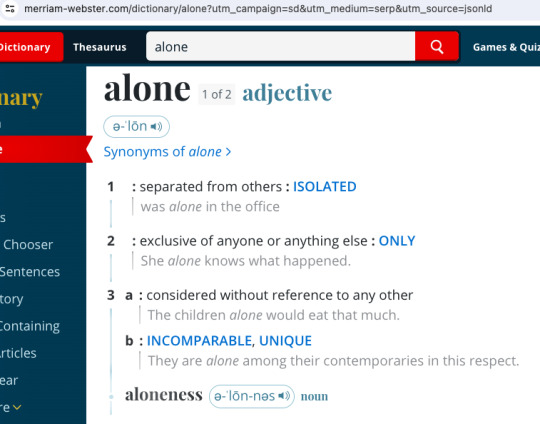
CP: Somebody once said, “Every day is Truman Show. True men show their face and expose flesh…” Do you think acid allows you to see beyond this reality?
SP: No. It allows me to see this one more clearly. Time, or whatever it is that we collectively agree is this forward feeling momentum, seems to slow. So you (me) see the same things that you see everyday, but that your brain kinda knocks aside after a while. Things look new.
CP: Are you typically playing music when you trip? Does the music slow down? Not literally. But do you process it differently? And, of course, I’m curious if you ever try to make music in this state?
SP: I like making music that barely makes sense in whatever state I’m in at that time, so when I come back to it I’m even more confused. Like leaving yourself a drunk voicemail, but on purpose. I’m generally high—it’s just a matter of how. And to the last question: Do or do not, there is no try.
PremRock: I think [Small Professor's] work has benefited from discovering [hallucinogens]. He’s pretty passionate about ’em! I think it’s made him more expansive and he’s more eager to try far out ideas. He was always psychedelic in nature, but this just provided more of a conduit.
Zilla Rocca: Even without shroomz he always had a bugged-out sense of melody, rhythm, and layered samples. Smalls has always been a seeker. We connect like that. We love unearthing old rap to learn from it while appreciating all the new styles.

When brothers start buggin’, I bug the most.
—Jungle Brothers, “Simple As That”
CP: I’ve never fucked with psychedelics, so I generally have either a romantic or sensational notion of what it must be like. Have you ever had any experiences where things went really weird, or have you ritualized it enough so that you know what to expect? Like it’s become yoga or meditation for you by this point.
SP: Yeah, it’s pretty meditative. The first time I had acid was so surreal that nothing else could dream to compare.
CP: When was that? Do you still remember the details?
SP: Well, first of all, I couldn’t have started such a journey without such caring guides, for they did not have to take time from their lives to explain how much to take, how much not to, to be mindful of the kind of media you’re ingesting while in that space—like nothing too scary and shit like that. They specifically said, “Maybe watch a comedy tonight. Something on the lighter side of things.”
CP: I’ve heard that’s important, having a guide.
SP: So I believe I initially started off with the smallest amount I could take, cuz I didn’t know any better. But the effect was immediate. I remember going outside and just standing in an empty parking spot in front of my crib and watching it rain. It was night already. I was like, Wow, this is the best rain I’ve ever seen, and I’ve seen a lot of rain. And then I went out to get more tree. On my way home though, so…okay. How do I explain this? So, my Lyft driver on my way back to my house, he and I strike up a conversation. At the end of our talk, which included a phone call to someone of high stature in the 5% community who spoke to me directly, I embarked on the path to knowledge of self.
CP: Like, sincerely? Or only until you stopped being high?
SP: Well, I know now it started there. But I’ve always known that I am god, in some way. It’s just that, after you find out, what do you do with that knowledge of your own god-dom? That’s one thing I can appreciate about psychedelics. It’s like, Alright, well, if I know my brain is capable of such a thought or a piece of music in this one state, then I should be able to get back to it.
CP: I get that. Like, “I’ve done this before, so I can surely do it again.” But, for so many artists, they struggle to capture whatever it is. I know a lot of times I’ll look back on something I’ve written and then ask myself, How did that even happen? Because the process—the making of something—is often so unconscious.
Curly Castro: Smalls calls me after the fact (bka “a trip”) and regales me with a cornucopia of odd and odder occurrences. I will say that one time [redacted] and that’s when [redacted] and what could say after [redacted]. I just told him, Say Less.
CP: How long will this trip last? You took two tabs at 9 PM, and it’s been 4.5 hours.
SP: Oh, I’ll be up for a while. Night hasn’t even begun.
CP: I need to crash because I’ve got to be up early. But keep dropping whatever random thoughts you have here. We’ll call this Part 1.
SP: Fantastic, Pt. 1
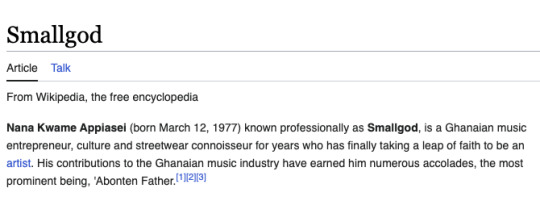
SP: “God is never small.” Those are the words that man said, and my reply was, “...I am? I am. Ohhhh. I am.”
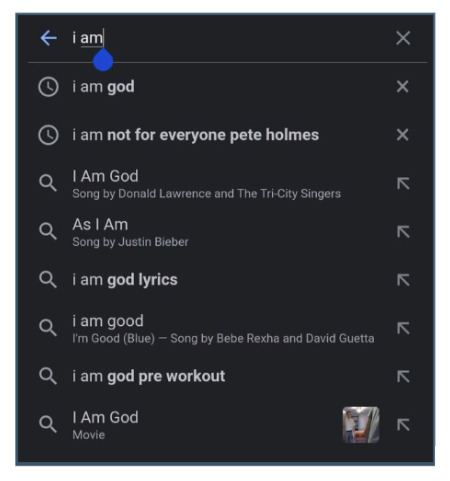
[Small Professor links me to a video showing Donald Lawrence & The Tri-City Singers performing “I Am God.”]
SP: Also, I’m quite proud of the fact that my government name [Jamil], oddly Arabic considering how Christian my dear mother is, quite literally translates to “Beautiful Ruler,” with my first name actually meaning “god” in certain places (“Jamil” is one of Allah’s 99 aliases—I found that out earlier this year). My mom HATES THIS BOYEEEEE. She thought it just meant “handsome.”
SP: Words mean things but don’t have to.
SP: [Denmark Vessey & Scud One’s Cult Classic] (This is my official trip soundtrack.) “Throw bricks at him if you can’t build wit ’em, / Whoever marquee, top bill, I’ll Kill Bill ’em.”
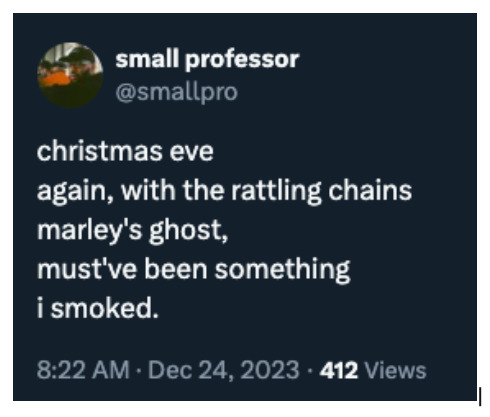
SP: It’s 8:23 AM. Still trippin’.

PART II
[December 24, 2023 | 9:15 AM]
CP: You awake? If so, talk to me about “Dettol.”
SP: I feel like that beat was made along with a few others in that same span of time with Roc Marci in mind. Not only in terms of the drum un-emphasis but also being intentional about giving an MC room to operate, to breathe. On Midnight Marauders, both “Electric Relaxation” and “Lyrics To Go” are special beats because they operate within the parameters of 4/4 time but the bar lengths aren’t the typical 8. On “Dettol,” you have mostly 8-bar loops until it shifts to 12 for one measure, and then it starts over. (Not sure about my beat math there.) So the Armand Hammer guys had to each approach that in their own way. Couldn’t have drawn it up any better. “Numbers look crooked like King Kong shook it.”
CP: (That’s your second Slum Village reference in this convo.) Paraffin was the first album I heard by them, so that beat would’ve been the third Armand Hammer song I heard overall. And that “giving them space” idea definitely benefited me—a guy who hadn’t been paying attention for years, specifically because lyrics weren’t grabbing me like they used to.

The psychedelic experience is not just an internal, private affair. The “turned on” person realizes that he is not an isolated entity, a separate social ego, but rather one transient energy process hooked up with the energy dance around him.
—Timothy Leary, “You Are A God, Act Like One!”
CP: How did you originally connect with woods and ELUCID?
SP: I may have been aware of ELUCID as early as 2005 by way of his Tanya Morgan/Lessondary/Okayplayer fam associations, but 2007 when he dropped Smash & Grab is when I instantly knew, Ah, this guy’s one of the best rappers ever. By 2009, that became, The best ever. That was the Myspace era, so we connected on there musically but also on some homie shit. We were working on a song of his in like 2011 or ’12 for the BIRD EAT SNAKE mixtape, “Dumb Out.”
ELUCID: BIRD EAT SNAKE is a whole lifetime ago. I had just met woods. I was also just beginning to develop the Cult Favorite record with AM Breakups. I was super charged creatively and was fortunate enough to have a lot of space to develop that. “Dumb Out” was such a strange beat that made my pen move immediately. Nothing overthought or drawn out. Just really chunky, vibed out, and punchy energy. I just began to acquire these attributes during the making of that tape.
CP: “Don’t eat the brown acid…”
SP: Originally woods was supposed to be on there. I distinctly remember this being one of the first times I heard him because…okay. He recorded a verse on this beat and ELUCID sent his acapella but no reference to guide from. And I’m very good at matching up acapellas, so the fact that I could make no sense of his flow—where to place it in the mix—always stuck out to me.
CP: Is that why he didn’t end up on the song?
SP: I don’t believe so. That would be funny if true, though. Because it feels like I have more music with those two than what tangibly exists.
CP: Also funny because, as their audience has grown—exponentially of late—the “discourse” returns to whether woods raps “on beat” or not.
SP: Once I understood that the question of if he’s rapping on- or off-beat is the wrong one—when it should be, Why do I hear this as off-beat? How do I hear what he heard to deliver it that way?—that’s when it clicked for me.
CP: Was “My Blank Verse” your first beat for them officially?
SP: That was the very first song me and ELUCID made together. Don’t think it was for anything in particular, initially.
CP: Got it. So it wasn’t approached as an Armand Hammer track, per se. Just ended up on an AH project. When did you connect with ELUCID in person?
SP: I wanna say I met him in person at a show in Philly, at the Khyber. But the time I remember the most is when I was in Brooklyn with him (this actually might have been when we met up to record “My Blank Verse”), and he showed me the block where B.I.G. grew up. I like to imagine my power levels increasing on that day due to the residual holy hip-hop energy on the premises.
CP: That’s dope. I’m surprised to hear you recorded the track in person. Both because so much is done remotely now—the producer and the MC separate—and also because ELUCID, I’ve read, is pretty private when it comes to recording. Maybe that came later, though.
SP: Yes, that did come later to my knowledge. But also, I’m special.
ELUCID: This was the era when Willie Green’s studio was still in his apartment. I had just started recording with Backwoodz, and “My Blank Verse” was indeed recorded that afternoon. I usually don’t have people hanging in the studio while I record, but I think my comfort level with Jamil speaks to the ease I feel in our dealings.
SP: I also remember going to meet ELUCID in New York specifically to get a flash drive that had he and woods’s verses for the Sean Price “Midnight Rounds” song they all should have been on together. His internet was down.
CP: Why didn’t that track come to fruition?
SP: woods’s hook was an interpolation of Apache’s “A Fight” (because, midnight rounds). The label was like, “Oh nah!” Word for word! Bar for bar! Sean P would have appreciated it.

CP: Jersey’s own.
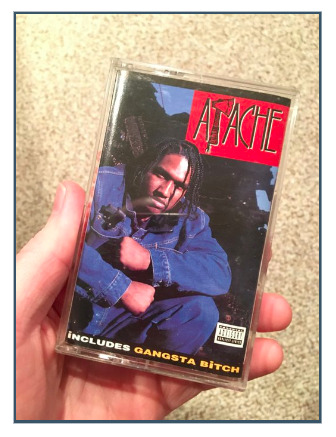
billy woods: At that point in my “career,” I was kinda disappointed to get cut but not surprised. I guess I had a long history being snubbed regularly by peers and institutions in the indie music scene, so it just seemed like, Yeah, more of the same. I was pleasantly surprised to be invited, and unpleasantly unsurprised to be disinvited.
SP: So, kept ELUCID’s verse and subbed in my man Castle, making this song the spiritual successor to a track I did on me and Guilty Simpson’s Highway Robbery, also featuring those two. Things fall apart, but they also come together. How they’re supposed to.
CP: What’s the story behind “No Grand Agenda”? Also, where are we at in terms of the trip?
SP: It’s slowing but at a light jog now. The beat for “No Grand Agenda” was originally part of an album I did made up entirely of exactly 1-minute long songs called You’re Killin’ Me Smalls. There were 60 songs. ELUCID was one of the only rappers I sent it to, specifically because it wasn’t “supposed” to be for raps. I had an ex who stomped out my computer and hard drives one day, including the original files for this project. All except for that one.

SP: “Are we sure there’s no grand agenda?” And ELUCID took my stems and arranged it how he heard it. It was meant to loop in on itself, like the other songs on that project. It was originally named “Kelvin Spacey,” and I’m sure I’m misremembering but I wanna say “Dettol” was originally named “Kelvin Duckworth,” if only to verify Zilla Rocca’s guess that I was the producer in question that had sent woods a beat named after his favorite Portland Trailblazer.
CP: So you’re saying, like any good friend, ELUCID jacked that beat?
SP: Oh, I remember him asking to rap on it, perhaps for nothing in particular at the time. But who am I to deny the goat? And it’s obvious to me that this is how it was supposed to go; ain’t nothing coincidental or accidental, dunn.
ELUCID: The making of “No Grand Agenda” was a cornerstone for a foundational era of style for me. I felt like I made a song that seamlessly weaved both verse and chorus in a way that felt absolutely hypnotic. It was a new belt for me, this sense of control. Small Pro was one of the first producers to trust me enough to send his beat stems. During this period is where I began producing more of my own music, so I also wanted to arrange the song how I heard it. Thankfully, Jamil dug it.
CP: What do you like about ELUCID’s rapping?
SP: Some of it is the voice. Some of it is the things that he’s saying. But mostly, my favorite rappers all share this in common: they can get busy on any style of beat, any tempo, any sound, any Small Pro time puzzle. I was listening back to his older stuff a little while ago and heard him doing whole specific styles on one song, and never doing it again. The versace, versace flow, in particular. It felt like he was bored at the time and peered ahead three years to see how everyone was rapping, came back, did it, and that was that.
ELUCID: [Working with Small Pro] is a special thing. Something that I’m still exploring. I think a Small Pro x ELUCID tape would be ill. Knowing his attention and care in the translation of my bars and flows is the type of partnership real MCs aspire to. It just hasn’t happened yet!
SP: He and woods both have had a way of inspiring me through specific lines. “Go where the drummer commanded me,” for example. It’s me. I’m the drummer. And woods, a few songs before “Dettol” says, “Beg producers to take out the drums,” which he said was meant to be a joke, but I took it literally and started making beats that could exist with or without drums equally.
All of my Backwoodz-related songs are credited as “Small Pro,” not “Small Professor.” I was on shrooms the week after my birthday earlier this year when I realized those are now different entities. Especially because woods was once like, “Wait, you did ‘No Grand Agenda’?” And I was like, “I did….I think? No, that was Small Pro.”
The last full project I—or I—did before moving back to Philly was a reimagining of A Jawn Supreme 1-3 from the Small Pro remix perspective. It was my—or my—first time remixing my own music, hearing things without the drums I put on them originally. It was an enlightening time. I hear voices at the fortress.
CP: I think it’s rare for a producer to be so attentive to what the MCs are saying, let alone to look at what they’re saying as guideposts. The idea of a differentiation between “Small Pro” and “Small Professor” is interesting. Where does the Small Pro path ultimately lead? Into this larger Armand Hammer universe?
SP: I feel like when I started out making beats my natural inclination has been to make things as busy as possible. Small Pro is like, What if I take away instead of adding? Or, How can I still have a million things going on in the track but it sounds bare or like, not done? “My girl say this beat sound unfinished, / I said, ‘Yeah, that’s where my voice go.’”
SP: (Not sure when I passed out. I knew the crash was inevitable.)

[December 24, 2023 | 6:47 PM]
SP: To your point about it leading to the AH-verse, that may be part of it too. They’ve both inspired me as rappers but also their production decisions and choices—ELUCID quite literally, as his production has always confounded me, but woods too. Two producers who have had just as much an influence on me as anybody I worshiped when first starting out are August Fanon and Messiah Musik—modern legends. Fanon can make beats for literally anyone. But Messiah’s natural style is one that both Hammers can sound great on from the get-go, whereas I have to consciously get myself into that mode. They also both sometimes do odd and potentially challenging things regarding time in their beats, as I do, but in their own way.
CP: Do I remember seeing you mention somewhere that you still use Fruity Loops and Cool Edit?
SP: Yup. I wanna say since 2008. Well, technically since 2003. But I’ve been using the same versions of those two programs for a minute now. Still using Windows XP, too. It’s comforting to me. And ridiculous. Like Rasheed Wallace faithfully wearing Air Force 1s his whole playing career.
CP: I love that. Some real “if it ain’t broke don’t fix it” ethos. Any rules for yourself when it comes to sampling? Strictly vinyl or are you irreligious when it comes to source format?
SP: 98% of my beats are made from mp3s. The remaining fraction is YouTube or some other source. Haven’t used vinyl for sampling purposes in many years but ironically try to make my beats sound like vinyl. As far as rules, everything I thought was law were things I later learned the musicians I look(ed) up to sneered at.
CP: Ain’t that the truth. Very little is sacred when it comes to process, I find. That’s a lot of ego. What efforts do you make to have the beats “sound” like vinyl?
SP: On “Dettol” is my go-to record crackle sample. That’s also in 98% of my beats, and something I specifically remember was like, corny or something, but—ah, here it is: Slum Village reference #3 to fulfill the rule—on “Hold Tight” Dilla uses a needle pop as a snare bolster as well as the accompanying static. It’s there for added depth and texture but also can act as a counter-rhythm to your percussion. Reality features an inherent level of static in the form of cosmic microwave background radiation around us at all times. Art imitates life.
[December 25th, 2023 | 11:41 AM]
CP: “No Christmas this Christmas…”
CP: I always like to think of the story—apocryphal or not—of Evil Dee using bacon grease hissing on the stove for extra crackle.
SP: The turntable hum is freakable too. Makes for a great bass sound but also something you can feel.
CP: Do you ever have acid trips accidentally interfere with other obligations? I imagine you’re always planning for a blocked out number of hours. But best laid plans…
SP: There’s a recovery period the next day, so that can be interesting to navigate. But yeah, I usually am in my room avoiding external interactions on whatever kind of trip it is. In my experience with acid, you gain more control over your “self,” and shrooms is the opposite, where your sense of self and awareness is reduced. Go home, brain—you’re drunk.
CP: The loss of control is something I just can’t handle. Have you ever found yourself in a situation on shrooms where you emerge later, like, “Damn, that was a bad look”?
SP: Yeah. My first time taking an 8th to the face (I ate it on a burger) after getting to and past the point of looking in a mirror and not recognizing my face for a sec. I later came upstairs and my BM had made some, like, lasagna? And it was so good that I’m just there demolishing it over the stove—like I was Garfield. Her friend walked in the kitchen at that moment and I should have been mortified, but in that moment there was only delicious lasagna.
CP: Real Gs move in silence like lasagna…

CP: Listening to Terror Management on Xmas morning. Is “Marlow” your beat/song with the most synchronicity between you and the rapper?
SP: It’s up there. That album is interesting to me because of the repeating motif of having two beats from different producers for one song—always thought that was cool. The intro on that beat had the spoken part added after the fact, so it did really feel like some good ole fashioned teamwork.
CP: And specifically the serendipity of you naming the beat for your late father, correct? I imagine an artist won’t typically name their song after the name of the beat. Was there a reason you named that beat, out of so many, after your father?
SP: Originally it was a play off of the artist’s name I sampled (a lot of my song titles are born this way), but I can also say it makes me think of my father’s dark side. He was one of the happiest, generally cheerful people I’ve ever known, but I’ve seen him go into green belt mode when pushed too far—only a few times, but it was like, Oh snap.
woods closed his set with “Marlow” at a Philly show last year shortly after my pops passed, and it’s one of the nicest gestures anyone has done for me. I was at the bar crying like a newborn fucking baby, god.
billy woods: That was a special moment for me, too. I really love that song. Pro and I have not worked that much together, but a lot of what we have done is really dope. He has produced a handful of Armand Hammer songs but they all hit, in my opinion. But [“Marlow”] is a song I really love and has come in and out of my setlist, but always makes it back in. The fact that it happened at that moment, and that it had that extra meaning for him was an honor for me.
SP: That album [Terror Management] as a whole has always intrigued me because of the repeating motif of two producers each having a beat on one track (this happens on some Armand Hammer albums too, now that I think about it, but it’s a different effect when it’s two MCs on each beat instead of one).
CP: Lots of doubles—the name, the sides of your father, “Small Pro” versus “Small Professor,” two beats, etc. Double-consciousness, perhaps. Not necessarily in a Du Bois sense; more so in the sense of realities.
SP: I’m all about man’s rugged duality.
CP: Did you and your father connect over music?
SP: Oh, absolutely. Our music rooms were down the hall from one another when I got started in college, and over the years he would start wandering in to hear what I was working on. Eventually, as he started transitioning into working in DAWs, he would ask for advice with things he knew I would be able to help with. He loved showing me whatever he was working on, and I knew he valued my opinion as one of the people responsible for a lot of my music edumacation in the first place.

[December 26, 2023 | 12:26 AM]
CP: Would you reciprocate and show him what you were working on? Did he look upon hip-hop favorably?
SP: He was from probably the last generation that didn’t grow up with hip-hop, and by and large it was probably offensive to him on two fronts: as a pretty religious dude the language and subject matter was too much, and musically all he heard were the loops, repetition, and sounds he loved and recognized being used all over again in an inferior, simple way. (I found a lot of the samples from Mobb Deep’s second album amongst his tape collection.) But over the years, as he saw how seriously I took it—as well as being impressed as a person who played 7-8 instruments by what I was able to do with two computer programs and mp3s—he was able to appreciate it as an artform (at least, the production side) even if it wasn’t quite his thing.
He’s also half the reason I’ve always been enamored with non-common time signatures, a key feature in a lot of the music he dug—that Weather Report, Yellowjackets, Return to Forever, Herbie Hancock, Steely Dan, late ’70s, early ’80s chamber. My mother was more into “traditional” jazz and classical. They shared gospel personally—and professionally—as working church musicians. On my first album, there’s a 5/4 beat that I remember excitedly showing him because it took me forever to get the chops lined up in an un-choppy fashion, and there’s a switch on there between drum pattern grooves much like what you would find on a jazz fusion-type song. I felt like if I could impress him, I must be doing something right. The last time we hung out before the cancer did him in, he was showing me how far he had gotten learning how to play drums, and I got on the sticks and tried to replay the patterns on some of my beats (emphasis on tried). The “trouble don’t last” jawn, in particular, to which he responded by telling me I was already a drummer. Memories live.
The times I saw his email pop up in my Bandcamp purchase notifications, I figured it was just a proud dad supporting his firstborn…nah, he was actually listening. His favorite project was the album I did along with my group Them That Do, which was my version of Madlib’s Shades of Blue on the beat tip. Besides digging the actual sound (updated jazz rap), I think he was most taken by the fact that he couldn’t quite tell what was sampled from where and that I had made all these sound from sometimes vastly different records seem like they were supposed to be together, and the beats made sense from the perspective of a person who understood music theory.
CP: “I said, Well Daddy, don’t you know that things go in cycles.” Beautiful that you guys got to share those moments.
SP: (I even said the part about two beats on Terror Management twice.)
SP: My brother (the actual drummer of the family) just sent me “Spain” by Chick Corea, one of our dad’s favorites. Speaking of my brother—who I credit with teaching me how to program drums and how to count bars and all that—one time we were on our way to church with my dad, and Steely Dan’s “Black Cow” was on. Pops started to try to explain the lyrics, what a “black cow” was, why they were very high…all that.
So a few years back I was proud to send [my father] “Gas Drawls” from Operation Doomsday because this story has always cracked me up, but also that’s a great-ass sample chop (and one that he appreciated, as opposed to the time my broski and I were buggin’ out over the beat for Jay-Z’s “Kingdom Come” and he was like, Is nobody doing anything original anymore?).

[December 28, 2023 | 12:56 AM]
CP: You should’ve sent him Lord Tariq and Peter Gunz after “Gas Drawls” and been like, “See.” As a drummer, does your brother fall more in line with your musical tastes or your father’s?
SP: I’d definitely say my brother has a much more diverse and varied musical vocabulary/understanding/tastes than I. We both grew up hearing, and then eventually listening, to rap. Twenty-three to twenty-four years ago when the neo-soul era was beginning, we were smack-dab in the middle of it, in the literal eye of the storm. Things Fall Apart, Like Water For Chocolate, Black on Both Sides, Reflection Eternal were just coming out. Musiq Soulchild was on the radio. Voodoo (which I didn’t get into until much later when I listened to it riding through Zanesville, Ohio countryside in 2007 [it’s still “Brown Sugar” over everything, though]) was everywhere. But there was also his actual school music education from primary to college, as well as listening to people from all instinctive travels and paths of rhythm, so he knows it all—or because he’d be like, “Shiiii, no I don’t!—a bit about a bit.”
I keep saying “my brother” when I have two. My younger bro is the drummer but my older brother’s tape collection was everything in high school (actually, even before that I was stealing his It Was Written tape when I was in seventh grade to play on the way to school). Being eleven years older, he was in high school when the great 90s east coast revolution was happening, and his Nike shoebox archives reflected the sounds of the time. As far as his tastes go, if DMX was still with us and dropped an album today, he’d get it without a second thought.
[December 28, 2023 | 11:10 PM]
CP: Sorry to trail off. Got a bit busy on my side. Would you be down to hit me with a handful of your most interesting beat names at the moment?
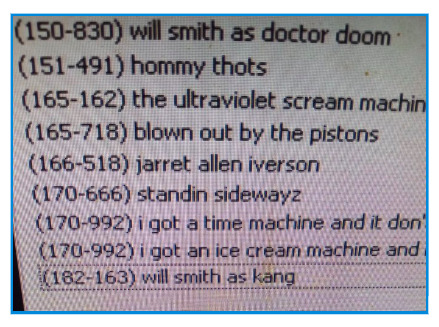
CP: This is art.
SP: The “Will Smith as…” series is new. They all slap.
[Small Professor posts a since-deleted message on X quoting Werner Herzog talking about stealing a 35mm camera from a Munich film school. The quote: “I don’t consider it theft. It was just a necessity. I had some sort of natural right to this tool. If you need air to breathe, and you are locked in a room, you have to take a chisel and hammer and break down a wall. It is your absolute right.”]
CP: I love this. “A natural right” to make something. Like a compulsion within. (I also love Herzog, so I appreciate the anecdote.) Do you remember where you first acquired that cracked Fruity Loops (and maybe Cool Edit, too)? If I think back, I probably had a friend hand me a disk, a CD-RW, back in like 1999 or something. God knows what sketchy site he downloaded them from.
SP: In college when I first started doing beats, I torrented everything—movies, programs, especially music—with nary a second thought. It’s a good way to give your computer a bad cold, which I did on several occasions. And I too appreciate Herzog because I love no myth more than my own as well.
CP: Have you got any myths on par with rescuing celebrities from wrecked cars or nonchalantly brushing off bullets to your abdomen?
SP: No, but I can say I did albums with both Sean Price and MC Paul Barman.
CP: Indisputable. I think this is an appropriate spot to (un)officially close this. Anything else you want to talk about?
SP: Gotta give a shout-out to the Jungle Brothers for making Crazy Wisdom Masters in 1991. PremRock told me legend was that they made it on shrooms and when I listened to it on acid I was like, Oh, yeah, y’all were high as fuck when this was made. I could tell not only because the music itself is bugged out but even the pace of the record is accelerated. They had some songs on there that were a minute-and-thirty-seconds but so much was going on , sometimes different things in either stereo channel that it gives off the effect of being on a trip and you’re noticing—for what feels like the first time again—that everything is happening everywhere at once.
Listen to Crazy Wisdom Masters when you get a chance. It’s a personal classic that I’ve listened to at least fourteen times this month. Warner Brothers did them dirty (this was their M.O. apparently—this was the same time period they were beefing with Prince) by delaying the entire record two years and having them clean up the tracks, and disrupting the carefully curated listening experience by taking tracks away and rearranging the entire thing. J Beez wit the Remedy, the resulting hodgepodge, would drop on my birthday in 1993, and when I first heard it, I was like, Hmm, something’s awry here, and that’s how I found out about Crazy Wisdom Masters.
CP: I think I downloaded it or thought about downloading it recently when people started talking about it again. Is there a “definitive” version to look for? I know Bill Laswell had uploaded a version to his Bandcamp page a while back.
SP: That’s a good question. The version I found that concludes with “For the Headz At Company Z” is the album as the god(s) intended.

Just as Small Pro is distinguished from “Small Professor”, “Crazy Wisdom Masters” is a distinct personality from “Jungle Brothers.” Small Pro is a definitive, lost Laswell version—a ra ra kid who catches wreck with randomness. He doesn’t channel, but grooves, as the most psychoactive Afrika Baby Bam and Mike G doppelgänger. We end up doubled-over; “dope-sick,” if you will. You sleep on it, then you wake up in the morning and dwells on it, as Small Pro casts his spells on it. (It’s as Simple As That.) SP’s Comin’ Through, and when he does, multiple realities accelerate as he explores radical possibilities. He’s chewing on the chemicals and raising up the levels on the decibels. We—his audience of lab assistants, his dilated pupils [and peoples]—“experience the ultimate, the infinite.”
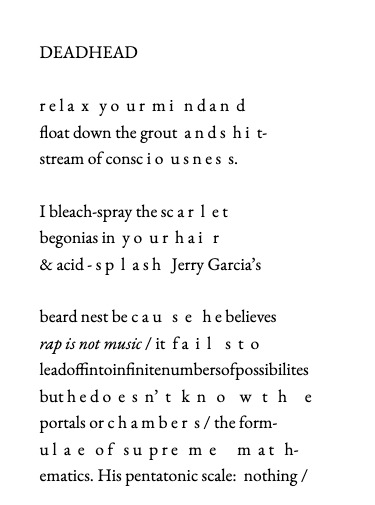
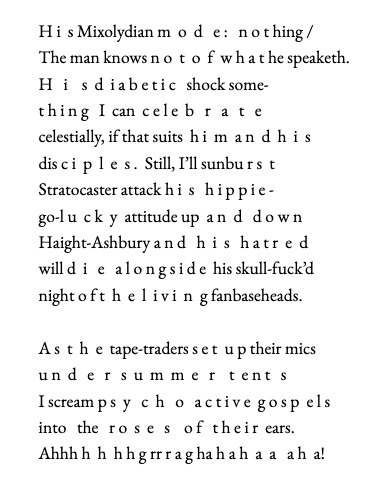
Images:
Most images are from the Vol. 1, No. 10 October issue of the San Francisco Oracle or unknown issues of the Chicago Seed | Small Professor “Sith Lord” photo courtesy of Matthew Shaver for WXPN | The Grateful Dead tapers section photo, Unknown | Screenshots by Small Professor | Apache tape photo by Caltrops Press | Gilbert Shelton, “The Fabulous Furry Freak Brothers,” East Village Other (detail) | “Deadhead” poem by Joseph Rathgeber
#small professor#backwoodz studioz#underground hip hop#elucid#billy woods#zines#armand hammer#wrecking crew#zilla rocca#premrock#curly castro#acid trip
8 notes
·
View notes
Text
Review of the Caroling in New York, 13 December 2008. The Village Voice, 15 December 2008
copy:
Julian Koster, Rudolph, and Badger
Andrew Frisicano’s Bushwick Apartment
Saturday, December 13th
Over an hour after the crowd gathered at Andrew Frisicano’s Bushwick apartment, a small dog appeared at the top of the stairs and sniffed into the living room, leash dangling behind him. “That’s Rudolph,” said once/future Neutral Milk Hotel sawman Julian Koster, arriving a moment later, singing saw under one arm, banjo under the other. A friend carried a small thrift store organ. The Music Tapes leader wore holiday red Converse All-Stars and a matching turtle-necked sweater.
Frisicano and his roommates, who opened their apartment to anyone interested in coming, were one of the last stops on Koster’s month-long saw-caroling tour, coordinated via cell phones and a Gmail account. They’d signed up a few weeks ago, only receiving notification that morning about Koster’s imminent arrival. Sitting down in front of the Christmas tree–mostly traditional, with a wrestling belt around the base for good hipster-kitsch measure–Koster introduced the crowd to Badger, his saw. Rudolph curled up nearby, though never sat still for too long.
Meanwhile, the twenty-plus post-college kids sprawled on the couches and floor tried to figure out what to make of Koster and his disarming bowl haircut. Whimsical doesn’t quite cut it. “This song was actually first flown by a young blind girl, actually, who mistook it for a kite and nobody in her village had the heart to tell her it was actually a song,” said Koster earnestly. “She would fly it every December, because that was the windy season in the village, and all the villagers would amass to hear the song, but she had always thought the villagers had come to see her fly her beautiful kite, and she was very proud of this,” said Koster matter-of-factly. “She died believing that, in 1902. It was passed from hand to hand ever since, and that was how Badger learned it. And it’s called ‘Hark the Herald Angels Sing.'” Koster then played “Hark the Herald Angels Sing.” Badger warbled gorgeously.
Koster begged off singing a song with the organ, his voice slightly ragged from performing up to five free house shows a night. (There’s an accompanying album, The Singing Saw at Christmastime, but Koster certainly never mentioned it.) A few flat-picked songs on banjo, plus more from Badger (who bowed to the crowd after each number) finished out the “set.” Koster declined the lukewarm Jameson-laced hot chocolate lingering on the stove and then set off with dog, banjo, and friends for a loft show a few blocks away. —Jesse Jarnow
#Julian Koster#Caroling#Badger the singing saw#Rudolph#reviews#2008#copying all the text cos this site is not archived and photos are already nowhere to be found :(
5 notes
·
View notes
Text
LISTENING JOURNAL 5/14/23
youtube
Bill Frisell 's The Guitar Artistry of Bill Frisell (1996). Fascinating deep board look into Bill's guitar playing. He shows all kinds of techniques that he employs. He named dropped Jim Hall many times as a mentor. So of course I had to check him out next.
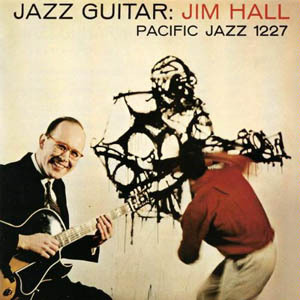
Then a pivot into a recent Solar Motel Band outing at Union Pool from those taping heroes @nyctaper:
Then one more dive in Fred Frith's vast catalog to sample his 2nd solo album on Ralph Records - Gravity (1980)
youtube
#bill frisell#Jim Hall#jazz guitar#Chris Forsyth#Solar Motel Band#nyctaper#Fred Frith#Ralph Records#Youtube
3 notes
·
View notes
Text
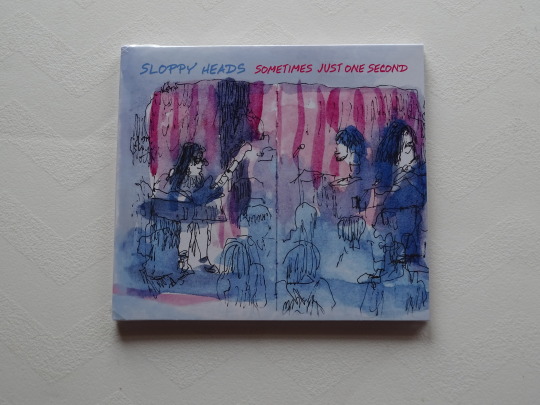
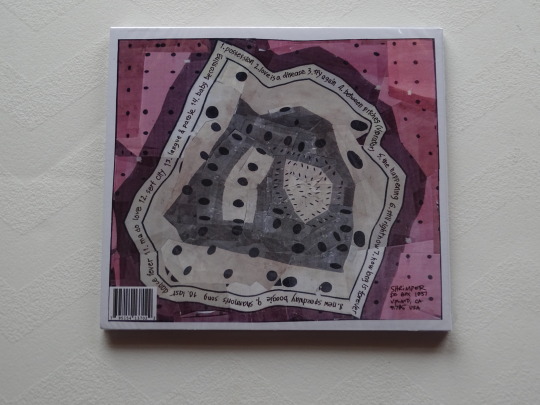
Monday, 5 February 2024:
Sometimes Just One Second Sloppy Heads (Shrimper) (released 18 August 2023)
My previous post was ostensibly about Sloppy Heads 2017 debut album Useless Smile but I predominantly talked about this album, Sometimes Just One Second, their second album which just came out last August.
When I first heard Shannon's Song I mistakenly believed it was from the 1990s. I'm a sucker for vocals along the lines of Ariella Stok who handles the bulk of the vocal duties. The other vocals are performed by Jimmy Jumpjump (aka Jesse Jarnow) who penned this book and who writes this obsessive blog about the Grateful Dead. I was absolutely clueless of Jarnow's involvement in this band until I began researching it. Furthermore, when I bought these albums I had no idea that James McNew was involved with the band, producing them and playing with the band. I'm not insinuating that McNew is the sole force behind the endless lengthy drones that there songs occasionally erupt into (the 13 minute Still Right Now and the 7 minute cover of the Dead's New Speedway Boogie are pleasing moments) but it sure lends a sense of credibility when the band does explode into a lengthy noisy jam. (Obviously, I'm playing this as I write this entry.)
This album is only available on CD at the moment and good thing: it's a 75 minute tour-de-force that recalls those CDs of yore that would never shut up. But for some reason that doesn't bother me at the moment. You get the lengthy noise tracks and then you get a three minute jewel like Shannon's Song or the brilliant Last Dance Fever. I'm thrilled being over at God's Jukebox (even if my participation has had a steep decline, man, that's an endless amount of work to stay on top of and I do not always have the energy or desire to track everything) knowing there are inroads to discover some new music.
Above is the front and the back of the CD. Below is the gatefold of the digipak in two guises: with and without the CD.
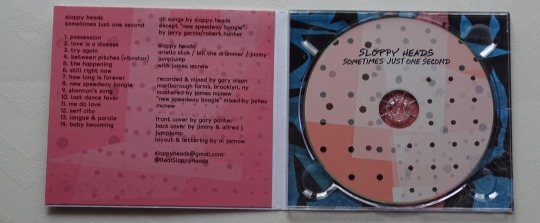

I close out with the CD in close detail.
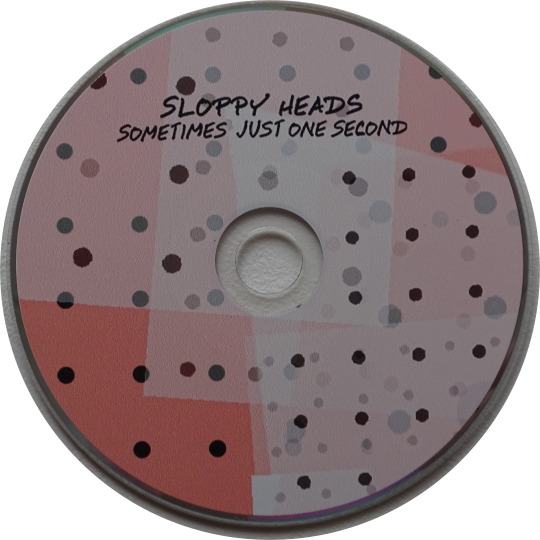
0 notes
Photo
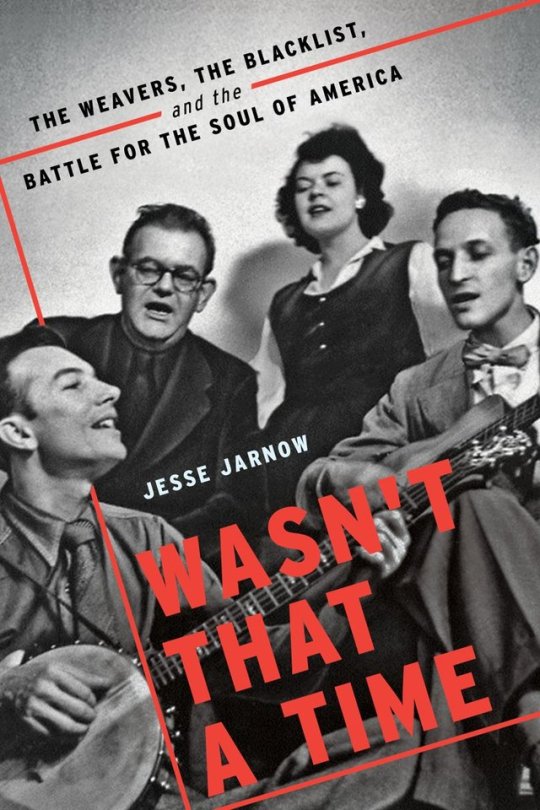
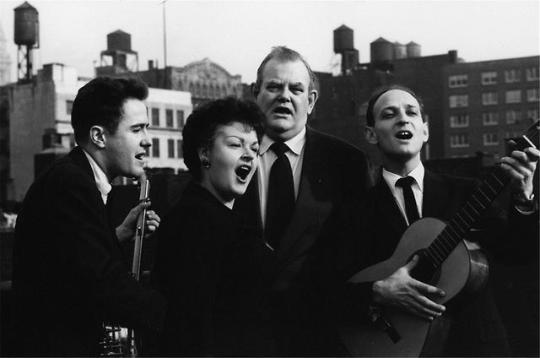
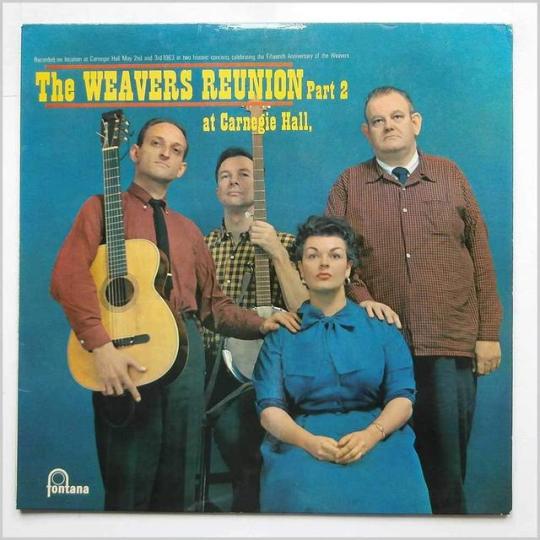

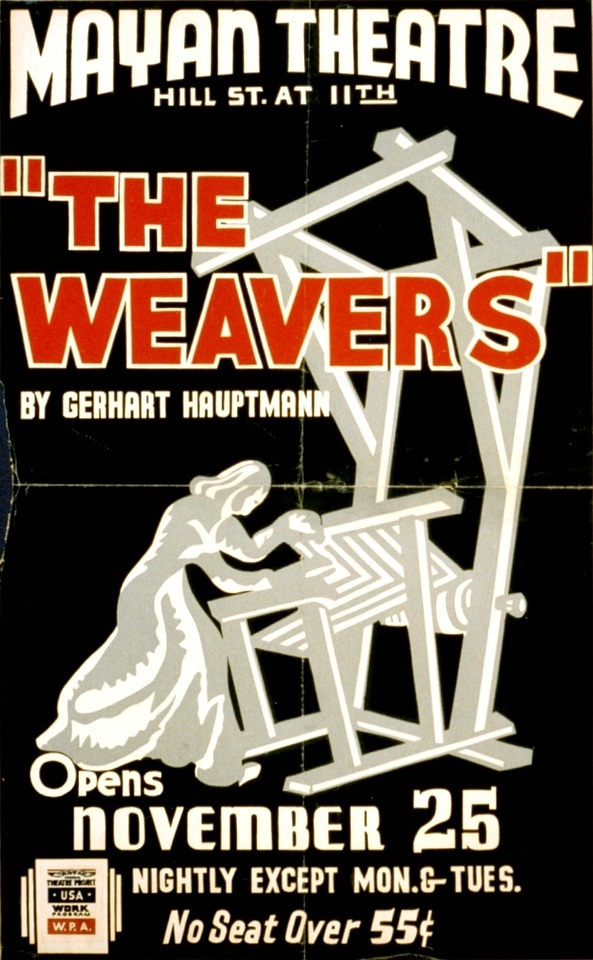

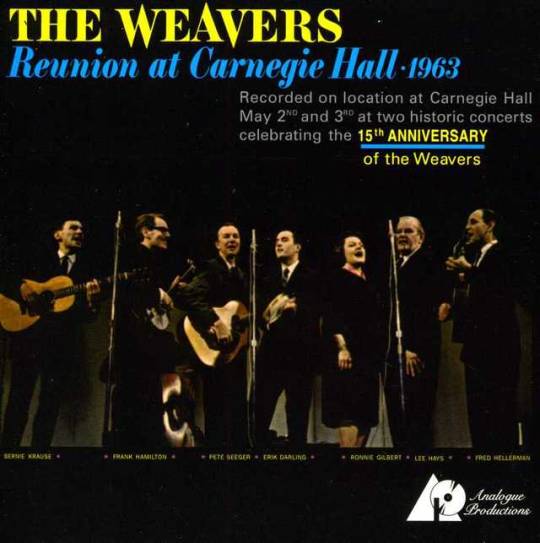

New from Da Capo and music historian Jesse Jarnow, Wasn’t That a Time: The Weavers, The Blacklist, and the Battle for the Soul of America.
#books#jesse jarnow#wasn't that a time#the weavers#blacklist#mccarthyism#progressives#folk music#music history#biography#Da Capo Press#new books#new releases#music#folk singer
6 notes
·
View notes
Text
Mister Clean Is The Man
Mister Clean Is The Man
Hey, Enthusiasts! It’s spring! For, like, two weeks already. In my defense, there aren’t four seasons in Florida. There’s six months of “almost too hot.” and six months of “far too fucking hot Jesus Christ my balls are epoxied to my thigh with sweat .” Spring and autumn don’t happen here. Or winter. Florida is just varying degrees of summer. So what brings about this realization that the…
View On WordPress
1 note
·
View note
Text
Dust Volume 7, Number 2
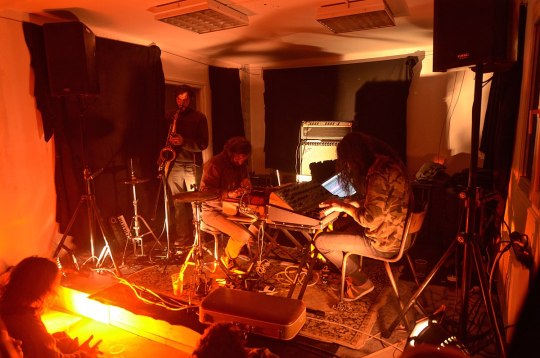
Bitchin’ Bajas
The whole country is snowed in and Texas is starting to look a lot like the Terrordome, and we can see how people might not be laser focused on music right now, especially if they’re cold or sick or out of food. But music continues to pour in, in great quantities and beguiling diversity, and a fair amount of it is very, very good. So, while we encourage you to take care of your brothers and sisters first (by donating to organizations like Austin Mutual Aid, Community Care — Mutual Aid Houston, Feed the People Dallas or the Austin Disaster Relief Network), we also present another collection of short, mostly positive reviews of new-ish records that have caught our attention. Writers this time around include Ray Garraty, Jennifer Kelly, Bill Meyer, Justin Cober-Lake, Eric McDowell, Bryon Hayes, Jonathan Shaw, Tim Clarke and Mason Jones.
Babyface Ray — Unfuckwitable (Wavy Gang)
youtube
On his new 7 song EP Unfuckwitable, thanks to his technical skills, Babyface Ray grinds through a great variety of trendy topics under a great variety of beats: from “not rap” rap to “bad bitch” rap to “we got it off the mud” rap. It’s all very professionally done, as you expect from a professional rapper, despite Ray’s claims that he’s not one. But midway through it, behind the misty fog of bouncy production and some lines catching the ear, you can clearly see at least two problems, with the EP and Babyface Ray. First, he doesn’t have anything to say (unlike some hip hop artists who ran out of things to say, he never had any in the first place). Second, he either doesn’t rhyme or goes for a lazy rhyming. The standout here is “Like Daisy Lane”, a catchy little song, with absolutely no substance behind it.
Ray Garraty
Bananagun — The True Story of Bananagun (Full Time Hobby)
The True Story of Bananagun by Bananagun
Ooh look, it’s tropicalia from Australia! The five-piece Bananagun hails geographically from Melbourne, but metaphysically from 1960s Sao Paulo or swinging London. Their first album swaggers like a long-haired hipster in wide-flared hip huggers, fingers snapping, funk bass slapping, keyboards and flutes gamboling in hot melodic pursuit. Multiple band members got their start in similarly 1960s-aligned Frowning Clouds, so the psych garage freakbeat elements are, perhaps, to be expected. But Bananagun runs hotter, wilder and considerably less Anglo. “People Talk Too Much” rattles the foundations with scorching funk percussion, big flares of brass and a vintage Afro-beat call and response chorus. “Mushroom Bomb” likewise heats up psychedelic apocalyptica with seething syncopations of bass and drums. Most of these tracks are a bit overstuffed, with a pawn shop’s worth of instruments enlisted in happy, dippy, everyone-get-in-the-jam exuberance, but am I going to complain about too much joy? I am not. Bring on the Bananagun.
Jennifer Kelly
Andrew Barker / Jon Irabagon — Anemone (Radical Documents)
Anemone by Andrew Barker + Jon Irabagon Duo
Some names tell you exactly where you stand, and others raise questions. Take the name of this record, for example; did drummer Andrew Barker (Gold Sparkle Band, Little Huey Orchestra) and tenor saxophonist Jon Irabagon (Mostly Other People Do The Killing, I Don’t Hear Nothin’ But The Blues) have the aquatic or land-lubber variety in mind? To get specific, is this record a buttercup, or a bottom-dwelling, plant-lookalike life form that waits for other aquatic species to come close enough for it to lance them, paralyze them with venom and chow down on their still-living bodies?
“Learnings,” the first of the album’s four tracks, is true to its name, being a distillation of instrumental tones and free jazz attacks that might remind you of moments from various Coltrane and Pharoah records. It feels familiar, but invigorating. The title tune comes next, and it’s a slower, more laconic performance, attractive enough to be either the sea or land variety. Then comes “Book of Knots,” which suspends an intricate percussive construction over slow-bubbling pops and barks. The record closes with “Branded Contempt,” a juxtaposition of pathos-rich blowing and restless brushwork. One can listen most of the way through this record without guessing whether it owes allegiance to Poseidon or Persephone, but the coarse intensity of Irabagon’s playing in the last minutes is the tell; this record packs a sting.
Bill Meyer
BBsitters Club — BBsitters Club & Party (Hausu Mountain)
BBsitters Club & Party by BBsitters Club
Label Hausu Mountain specializes in weird experimental electronics. Its release of a rare rock record might raise a few eyebrows. BBsitters Club, with the label's founders making up half the quartet, pulls off a tricky feat in becoming an arch rock band. BBsitters Club & Party has enough old-fashioned blues and psych-based rock to suggest a group taking itself seriously. Naming the opening track “Crazy Horse” immediately calls attention to its meta status, even if the track sounds more like Pink Floyd than Neil Young's collaborators (and there's a touch of hair metal in there, too). No group with songs called “Joel,” “Joel Reprise,” and “Joel Reprise Reprise” can take itself too seriously, and that kind of playfulness runs throughout the disc. At the same time, BBsitters Club does take its musicianship seriously. They avoid conventional forms, working in complicated structures full of surprising twists. The group can get a little proggy, but then twist it toward an Allman Brothers-style jam. If it starts to settle into the Woodstock era (see the clear nods to Hendrix and Cream), it jumps to the 1980s with an unlikely easiness. The band goes wherever they feel like rocking, with everyone invited to the party.
Justin Cober-Lake
Bitchin Bajas — live ateliers claus (les albums claus)
Bitchin Bajas - live ateliers claus by Bitchin Bajas
If we can all agree the pandemic has dealt musicians some dizzying blows, that’s hardly to say they had it easy before. Squeezed between tech platforms and spurned by a hostile federal government (speaking for the US, anyway), even on tour they had to contend with iffy financials, physical neglect and — because why not say it louder for those in the back? — literal theft. So Cooper Crain, Rob Frye and Dan Quinlivan found themselves over 4,000 miles from home in May 2018, playing Brussels’s les ateliers claus on borrowed equipment after having their gear stolen (twice) on a European tour in support of Bajas Fresh. “Um, we’re, ah, Bitchin Bajas, from Chicago ... Illinois,” one of the trio says over the set’s first tentative tones. “And thanks ... for coming. This is gonna be great, I think. Or, we’ll see.”
Perhaps it’s not a question of either/or but both/and, the cosmic “we’ll see” of COVID-19 only amplifying how truly great it is to receive this music in the unimaginable future of three years later. As ever with the Bitchin Bajas, there is pleasure in the subtleties, whether that’s an excited concert-goer whooping as “Jammu” picks up momentum or the way each turn of the musical kaleidoscope seems to bring out new hues. That the recording doesn’t represent any dramatic departure from what we hear on the studio album or during other sets on other tours is part of its appeal and part of its power as a balm. We don’t need any more startling revelations right now. In this sense, the whole live ateliers claus series is a reminder that this venue and these artists — from Michael Chapman (vol. 1) up through Will Guthrie (vol. 12) — are still here today. If we can help repay what’s been stolen from them, they’ll be here tomorrow, too.
Eric McDowell
Loren Connors & Oren Ambarchi — Leone (Family Vineyard)
Leone by Loren Connors & Oren Ambarchi
This is the first time that Loren Connors and Oren Ambarchi have collaborated, despite the myriad ties that bind the two guitarists across the global exploratory music scene. Leone offers a trio of pieces arranged like overlapping globs of paint on a painter’s palette: the two artists each perform solo with a collaborative piece in between. “Lorn” is a side-long Connors piece with the guitarist in an experimental mood, hammering the reverb-drenched strings to create a glorious cacophony. Ambarchi’s “Nor” recasts the guitar first as a church organ and then as a subaquatic communications device. When the two pair up for “Ronnel,” it is a symbiotic meeting. Connors picks out notes around which Ambarchi weaves contrails of tone. It is a mesmerizing piece, and, we hope, just the first of many joint efforts from these two.
Bryon Hayes
Buck Curran — WFMU 'The Frow Show' Live Session (Feat. Jodi Pedrali) (Obsolete Recordings)
Buck Curran: WFMU 'The Frow Show' Live Session (Feat. Jodi Pedrali) by Obsolete Recordings
When we last caught up with Buck Curran, he was hunkered down at then ground zero for the COVID epidemic, socially isolating in Bergamo, Italy while recording the lovely acoustic-guitar-and-voice album, No Love Is Sorrow. Half a year later, still deep in the grip of a worldwide pandemic, he made this record, a duet with Italian keyboard player Jodi Pederali, revisiting one song from the previous album and adding three others. The tracks with Pederali fuse Curran’s electric blues with the bright, meditative melodies of Pederali’s piano. The two players interact and overlap in intoxicating dialogue. “Deep in the Lovin’ Arms of My Babe,” reprises the finger-picked folk of Curran’s earlier album, adding a glittering sprinkle of piano to its mournful, wistful melody. The set was recorded for Jess Jarnow’s show on WFMU and released on Bandcamp, and while not as long or as weighty as No Love Is Sorrow, it’s well worth hearing.
Jennifer Kelly
Jürg Frey — l’air, l’instant - deux pianos (Elsewhere)
l'air, l'instant - deux pianos by Jürg Frey
When you put two pianos together, there must surely be a temptation to see how much sound you can get out of them. Swiss composer Jürg Frey does the opposite on the two compositions that make up this CD. Each is so sparse that an inattentive listener might think they are hearing one patient pianist, when in fact they are hearing a pair of deeply skilled interpreters. The task assigned to Reinier van Houdt and Dante Boon is to place their notes in such precise relation to each other that they can influence each other’s pitches without interfering with them. Each musician is, as the title “toucher l’air (deux pianos)” (2019) suggests, inducing a slight disturbance in the atmosphere, lightly pressing transitory shapes into the silence that absorbs each note. “Entre les deux l’instant” (2017/2018) allows the two pianists to decide how closely they will match paces as they trade the roles of melodist and accentuator. Immune to gauche temptation, Frey seems drawn instead to see how much attention and how little sound it takes to accentuate the beauty of silence.
Bill Meyer
Chris Garneau — The Kind (The Orchard)
THE KIND by Chris Garneau
Chris Garneau’s lush, stunning art-pop swoops and whirls and flutters in wild arcs of drama. In this fifth album, the New York City songwriter works in a restrained palette of guitar, piano, electronics and drums, but colors way outside the box with his vibrant, emotional-laden voice, which flies up into a falsetto register with an ease not heard since Jeff Buckley passed. “I know you loved me truly, but we don’t love one way, do we?” he croons on the gorgeous “Telephone,” lofting up into whistle range without losing the purity or the trueness of his tone. Cuts like the title song and “Now On” are prayerfully simple, just framing piano chords and Garneau’s highly charged delivery. But others like “Not the Child” are more intricately constructed with a lattice of picked strings, an antic syncopated beat and staccato vocal counterpoints that dance around the main line. The Kind’s songs are deeply personal and rooted in Garneau’s experiences as gay man, but they’ll resonate with anyone who’s ever loved or longed or regretted.
Jennifer Kelly
Gaunt Emperor — Femur (Self-released)
Femur by Gaunt Emperor
Some would-be emperors may no longer have clothes (looking at you, Trump), but Gaunt Emperor is unabashed about wearing its influences on its sleeve. Femur is the first LP by this California project, and Sunn 0))) and the first few records released by Earth are large presences, looming hugely just behind the sounds Gaunt Emperor generates. If you’re familiar with those other bands, you get the essential idea: deep (really deep) notes and long (really long) sustain from loud (really loud) guitars, and not much else. That said, Gaunt Emperor has an aesthetic vision that seems to be attempting to survey its own territory. While compositions like “Slow Submersion” and “The Birth of Obsidian” work from the playbook established by O’Malley and Anderson, the textures of Gaunt Emperor’s guitar tone have their own sort-of-subtle qualities. They’re pretty good. “Conception,” the second track on Femur, expresses a similar inclination towards melody that Earth began to demonstrate on The Bees Made Honey in the Lion’s Skull (2008), but Gaunt Emperor retains an unrestrained relation to volume; you can feel the heat inexorably building in the overdriven amplifier stack. In any case, this is suitable music for pondering massive, ongoing phenomena, like the calving of icebergs off Antarctica’s coast or the steady disappearance of the Amazonian rainforest — not that Femur will make you feel any better about that stuff.
Jonathan Shaw
Luka Kuplowsky — Stardust (Mama Bird)
Stardust by Luka Kuplowsky
Soft jazzy reveries coalesce around this Toronto songwriter’s offhand, semi-spoken melodies. Little accents of acoustic bass, slide guitar, hushed harmonies dart in and out of focus, but the songs themselves come up on you obliquely, filtering in from the vents in evocatively scented clouds. Rhythms sway in undulant, bossa nova syncopations, while chords slide into resolution from slightly off center. A half-remembered jazz flute lick lick lofts through the window. At the center of it all is Luka himself, posing, but not insisting on koan-like observations. “Perfection is a noose,” he confides amid the muted wreck and roll of massed jazz sounds in “City by the Window,” but he seems unbothered by it. Perfection is an accident, and if you look at it too hard, it disappears.
Jennifer Kelly
José Lencastre / Hernâni Faustino / Vasco Furtado — Vento (Phonogram Unit)
Vento by José Lencastre / Hernâni Faustino / Vasco Furtado
Vento is the Portuguese word for wind, and the name conveys that combination of purposeful and chance operations that converged to make this record happen. The trio of alto saxophonist José Lencastre, double bassist Hernâni Faustino and drummer Vasco Furtado didn’t book a studio with the intent to record; they just wanted a place to play for a couple hours. But the engineers had just obtained some microphones and wanted to try out their new toys. Likewise, this improvisational trio did not bring an tunes to the session, but they play with a purposefulness born of shared aesthetic values. Whether are sailing a brisk clip, as on the title track, or gradually unwinding the music at low volume and velocity, as on “Ruínas,” they operate as a real time compositional cooperative, developing their music in linear fashion. While they share a direction, they also value contrast. For example, Lencastre’s breathy tone during the latter tune’s early moments balances Faustino’s pointed twang. Since remorseless microoganisms and anti-cultural politicians are each doing their best to keep live music down, records like this serve a necessary function in reminding us of the life force that motivates improvised music.
Bill Meyer
Lilys — A Brief History of Amazing Letdowns (Frontier)
A Brief History of Amazing Letdowns by Lilys
Kurt Heasley’s Lilys made some of the most ebullient and inventive guitar music of the 1990s. The best Lilys songs sound as though they’re flying apart and being put back together as they hurtle along, killer hooks tossed aside as quickly as they start to drag you in. Though they’re perhaps best known for their Kinks-indebted breakthrough Better Can’t Make Your Life Better, this was actually a sharp turn away from the dense shoegazey atmospherics of their first couple of records. Thus far, Frontier Records has reissued their first two albums, In the Presence of Nothing and Eccsame the Photon Band, both of which are superb. The A Brief History of Amazing Letdowns EP was originally released in 1994, a transitional period when Heasley was still exploring the textural joys of distorted guitars while starting to throw down pop hooks with aplomb. Opener “Ginger” hits similar pleasure centers as Weezer’s debut, released the same year, while on “Dandy,” Heasley’s vocal sounds uncannily like Stephen Malkmus. The previously unreleased “G. Cobalt Franklin” foregrounds searing guitar tones and bulbous bass, the bulk of the melodic layers sounding like they’re bleeding through from the next room, peppered with swirling flange and voice recordings. The second half of this expanded edition comprises songs originally demoed for Eccsame the Photon Band, and later released in 2000 on a split EP with Aspera Ad Astra. They’re decent enough, though feel like they’re missing the spark of the best Lilys creations. So, while this amounts to a far-from-essential Lilys release, it’s fascinating to hear Heasley in transition, working out how to reconcile his love for melody with his immersion in guitar noise.
Tim Clarke
Fred Lonberg-Holm — Lisbon Solo (Notice)
Lisbon Solo by Fred Lonberg-Holm
As befits a guy who has also recorded a “solo” record in the company of a Florida swamp full of frogs, Fred Lonberg-Holm picks his recording locations strategically, and location has a lot to do with how this album turned out. It was done at an old and well-appointed studio in Lisbon, Portugal, where he could be sure that the microphones would catch every creak, groan and polyphonic wail he might draw out of his main instrument. But he also knew, from prior visits, that he would have access to some seriously over-the-hill pianos. While most of the album is devoted to savagely bowed attacks, the odd digressions into detuned, radiant chimes deliver just enough respite to keep you off balance and on the edge of your seat.
Bill Meyer
Dan Melchior — Odes (Cudighi Records)
'Odes' by Dan Melchior
Dan Melchior is likely a recognizable name to Dusted readers; he has made quite a string of releases over the years. This cassette/digital release, recorded in 2016, is a subdued affair, nine songs for the most part following the same blueprint: a track of strummed or lightly picked acoustic guitar with a fuzzy electric lead layered on top. The foundational guitar tracks establish a calm, repetitive cycle, giving some of these songs an almost raga-like feel, in some cases through a hazy reverb: "Tybee" feels like you're sitting in the next room listening to him play through a closed door.
Calling the overdubs "guitar leads" implies the wrong feel. While played through fuzz or distortion, the mood is a woozy one, more opiated than energetic, but in a drifting, pleasant way. There's an over-arching melancholy throughout these songs, one person alone playing to satisfy a need. Knowing Melchior was facing the recent loss of his wife Letha certainly colors it, but even a listener ignorant of that back-story would feel the emotional resonance.
These nine ramshackle, loose instrumental pieces are personal, incomplete, and like having someone entrust you with private stories in song form.
Mason Jones
Mint Field — Sentimiento Mundial (Felte)
Sentimiento Mundial by Mint Field
Mint Field, from Mexico City, filters the feedback and noise of shoegaze guitars through a pensive screen, finding an aura of nostalgia in between and among blinding walls of scree. Estrella del Sol Sánchez contributes two of the band’s signature sounds, the dreamy, delicate vocals and the swirling masses of altered guitar. She is supported by Sebastian Neyra on bass and Callum Brown on drums. The volume level varies song to song, but it’s all mesmerizing and good. “Delicadeza” breezes in on the tenderest sort of sigh, the softest, most lyrical strummed accompaniment, but “Contingencia” digs in and pounds, drums cranking, bass thudding and guitars winging out in wild arabesques of distorted sound. The easiest comparison might be the similarly hauntingly voiced Lush, but there’s something special here in the soft, keening soprano calm at the center of even the most agitated cuts.
Jennifer Kelly
Roy Montgomery — Island of Lost Souls (Grapefruit)
Roy Montgomery 40th Anniversary 2021 LP Series by Roy Montgomery
In 2021, guitarist Roy Montgomery celebrates 40 years of music-making with the release of four new LPs, beginning with Island of Lost Souls. Though 2018’s fantastic Suffuse included vocals from artists such as Haley Fohr (Circuit Des Yeux), Julianna Barwick and Liz Harris (Grouper), Island of Lost Souls is entirely instrumental, comprising four pieces, each dedicated to a late artist (actor Sam Shepard, and musicians Adrian Borland, Peter Principle and Florian Fricke). Though wordless, Montgomery’s guitar speaks volumes, flickering and flowing with the liquid grace of a player intimately familiar with both his fretboard and the effects pedals at his feet, sending waves of tone cascading with delay and reverb. Plus, on the side-long, climactic “The Electric Children of Hildegard von Bingen,” Montgomery pitch-shifts his guitar so it really ascends to the heavens, where it takes up residence for 22 minutes. Fans of Windy & Carl, Flying Saucer Attack and The Durutti Column, take note.
Tim Clarke
Jon Mueller — Family Secret (American Dreams)
Family Secret by Jon Mueller
A family secret is usually a multigenerational skeleton in the closet that is either sorrowful or sinister. For percussionist and Volcano Choir member Jon Mueller, it is the former: a series of familial rifts that became the unlikely muse for this collection of reverberating drones. Mueller employs instruments that produce multiple resonant tones, such as singing bowls and gongs, to create rich pools of complex sound. Metallic hues brighten subterranean rumblings while enigmatic dapples of condensed steam coalesce into liquid shapes. The drummer conjures ghastly creatures through extending the vocabulary of his drum kit. Cymbal scrapes become banshee wails and scoured skins emanate uncanny whispers. With Family Secret, Mueller manifests his personal demons as phantom signals. He transmogrifies emotional strife into physical actions which then become ethereal. Ironically, the resulting sounds are actually soothing. Pain has never sounded so sweet.
Bryon Hayes
Primitive Motion — Descendants of Air (Kindling)
youtube
Primitive Motion is the Brisbane-based duo of Sandra Selig and Leighton Craig, and Descendants of Air is their seventh album, previously only available as a CD given away at live shows. You can immediately imagine what the album sounds like based on the artist name and album title alone: rustic yet cosmic, full of space and open to spontaneity. Recorded on the banks of the Enoggera Reservoir, these eight meandering pieces prominently feature the sounds of wind and leaves, plus the calls of raucous Australian birds, while Selig and Craig insinuate suggestions of melodies and chords on nylon-string guitar, woodwinds, and battery-powered keyboards, and gently massage the air with percussive patters. Though part of the appeal of the recording is its deliberate vagueness, the most affecting piece, and the shortest, is “True Orbit,” where a strident theme built around melodica, keyboard and voice seems to emerge fully formed from the aether.
Tim Clarke
Socioclast — S/T (Carbonized Records)
Socioclast by Socioclast
In heavy music’s current moment of endless genre-hopping and hybridization, it’s nice to hear a record that understands exactly what it wants to be. Socioclast is a grindcore record. Like Assück’s grindcore’s records. A lot like Assück’s grindcore records. You get all the high-velocity chugging crunch and guttural grunting — vocals so deep in the gullet that it’s pretty hard to pick up any lyrics. The song titles, however, suggest the ideological dispositions you might expect: “Surveillance, Normalization, Examination,” “Specter Signal,” “Psychodrone,” “Propaganda Algorithm.” There can be a fine line between paying tribute and being derivative, but Socioclast creates an homage rather than an outright imitation. This is 21st-century music. It sounds a lot clearer and slicker than anything Assück or the early Slap A Ham bands committed to vinyl. Like Slap A Ham, Socioclast is a California-based musical phenomenon, featuring dudes who have played in bands like Deadpressure and Mortuous; Colin Tarvin’s death-metal grooves are especially prominent on some of the record’s best tracks, including “Eden’s Tongue” and “Omega.” But this is assertively a grindcore record. Given that version of traditionalism (and yes, events have come to such a pass that grindcore has a tradition), it turns out that Socioclast isn’t all that socioclastic. So goes the strangeness of semantics. But the music is good.
Jonathan Shaw
Space Quartet — Under the Sun (Noise Precision Library)
Under the Sun by Space Quartet
Space is a persistent and multi-faceted theme in the music of the Portuguese electronic musician, Rafael Toral. And while his name is not appended to the Space Quartet’s, make no mistake, this is his band, playing his music. But it is a music derived from ideas that can’t be realized without the right people. So, while Toral has delved repeatedly into the sounds that people imagine they might make and that they actually find in outer space, and he has explored empty and variously filled spaces as starting points for his music, the point of the Space Quartet is to find the right people, and give them enough space to realize a new kind of jazz. Under the Sun is the combo’s second recording, made with a substantially different line-up than the iteration that recorded the self-titled debut for Clean Feed Records. Toral has sacrificed the all-electronic front line and switched drummers, but in doing so he may have found the right crew to take him where he needs to go. Across the album’s two 21-minute-long tracks, there are usually several ongoing dialogues taking place between the players, which manifest intriguing degrees of mutual challenge and support. But the way that Toral’s elongated feedback lines and Nuno Torres’ stuttering alto saxophone phrases flow around Hugo Antunes’ stark, elastic double bass figures and percussionist Nuno Morão’s lightly deployed, carefully modulated streams of textures and beats that extends a lineage anchored in the language that Cecil Taylor’s trio first released into the air at the Café Montmartre back in 1962.
Bill Meyer
Stinkhole — Mold Encrusted Egg (Mangel Records)
MOLD ENCRUSTED EGG by STINKHOLE
The name sort of says it all, but to clarify anyways: Stinkhole languishes in a slimy musical ditch, bottoming out somewhere between the No Wave skronk of Mars and the transgressive caterwauling of Suckdog. As was the case with both of those acts, the dissonance and the gross-out antics can obscure some interesting ideas. Clawing your way through the dense layers of yuck (or, depending on how you’re wired, enjoying it) is integral to the challenge posed by the experience. All the gagging vocalizations, primitivist drumming and semi-tuned bass whomps on Mold Encrusted Egg occupy prominent positions on the surface of songs like “Orange Juice.” But listen to Mold Encrusted Egg a little more closely: there are some rabid grooves, feral guitar breaks and a lot of impenetrably weird environments of sampled sounds, tape manipulations and unidentifiable scree. Is it fun? Does it sound good? Fuck no. The band’s name is Stinkhole. They write songs with titles like “Slippin’ on Slug Slime” and “Emancipated by Hair.” They roll with the whacko punk and noise bands that have congregated around the Berlin-based Flennen digital music zine and its accompanying label. Dig the stink. Rock has rarely been so richly rotten.
Jonathan Shaw
Styrofoam Winos — S-T (Sophomore Lounge)
STYROFOAM WINOS "S/T" by Styrofoam Winos
Stryofoam Winos brings together three old friends to swap songs in Nashville. You might recognize Lou Turner from her solo album, Songs for John Venn, a sly and subversion of the songwriter’s wholesome alt-country charm. Joe Kenkel is a kindred spirit, a folk rock singer with respect but not reverence for the certitudes of Southern life. Says Nashville Scene of his solo Dream Creator, “Kenkel, a sophisticated folk-rock songwriter, documents Music City’s idiosyncrasies on his debut LP, with acutely observant lyrics.” And Trevor Nikrant completes this anonymous all-star line-up; his 2017 debut caught the ear of Aquarium Drunkard’s J. Steel who called it “Oddball baroque psychedelia broadcasted from a basement on the east side.” The three kicked things off with a lo-fi and charming debut, Winos at Home, in 2017, but this self-titled LP takes things up a notch with songs that balance craft with eccentricity. “Stuck in a Museum” jangles and rambles in an antic, neurotically intelligent way, as the narrator finds himself entrapped amid the exhibits, staring fixedly at a teapot from the Tang Dynasty. “Roy G. Biv” turns contemplative—and twangy—as Turner sings plaintively about rainbows and colors, the way things change and how hard it can be to keep up. “Maybe More” glints with mandolin, but remains pared back, as a down-trodden singer (one of the guys, not sure which) sings about a life stuck in neutral, same book, same coat, same jokes, but beautiful. The disc has the feel of a warm, casual gathering, with friends jumping in on harmonies or picking up the bass. The songs are sharp and lovely without a lot of fuss.
Jennifer Kelly
#dusted magazine#dust#babyface ray#ray garraty#bananagun#jennifer kelly#andrew barker#jon irabagon#bill meyer#bbsitters club#justin cober-lake#bitchin bajas#eric mcdowell#loren connors#oren ambarchi#byron hayes#buck curran#jürg frey#chris garneau#gaunt emperor#jonathan shaw#luka kuplowsky#José Lencastre#Hernâni Faustino#Vasco Furtado#lilys#tim clarke#fred lonberg-holm#dan melchior#mason jones
8 notes
·
View notes
Text
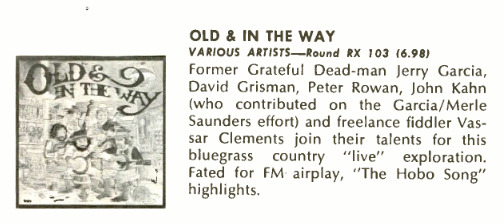

Bear sets the record straight. Again.
OP: Jesse Jarnow
3 notes
·
View notes
Text
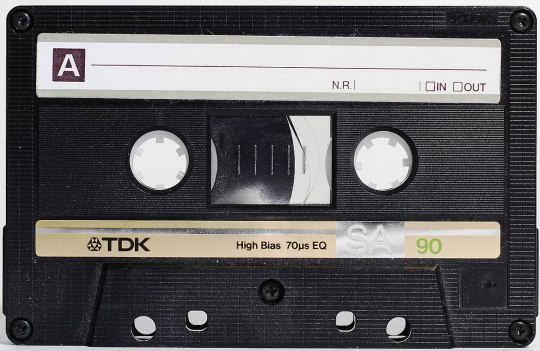
The Frow Show: Boot Happening 2022 (part 1 / part 2)
You don't need any extra reasons to donate to WFMU's October Hellraiser pledge drive, but here are a few! Two recent episodes of Jesse Jarnow's always frow-tastic Frow Show have been devoted to a topic near and dear to my heart: bootlegs!
The dual Boot Happenings that Jesse put together add up to six hours worth of amazing / unusual / rare oddities, ranging from free jazz freakouts to fuzzy folk ramblings to space rock jams. And beyond! "Live tapes & demos & blown-out rehearsal cassettes & sweet soundboards & radio sessions & other delights." Yes! So go throw WFMU a couple bucks and tell 'em Doom & Gloom sent you.
1 note
·
View note
Photo
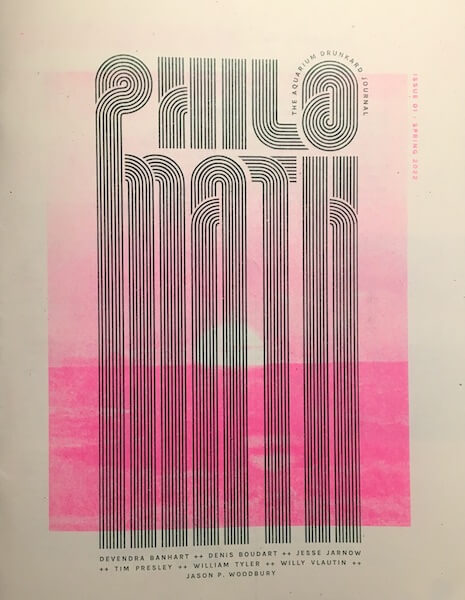
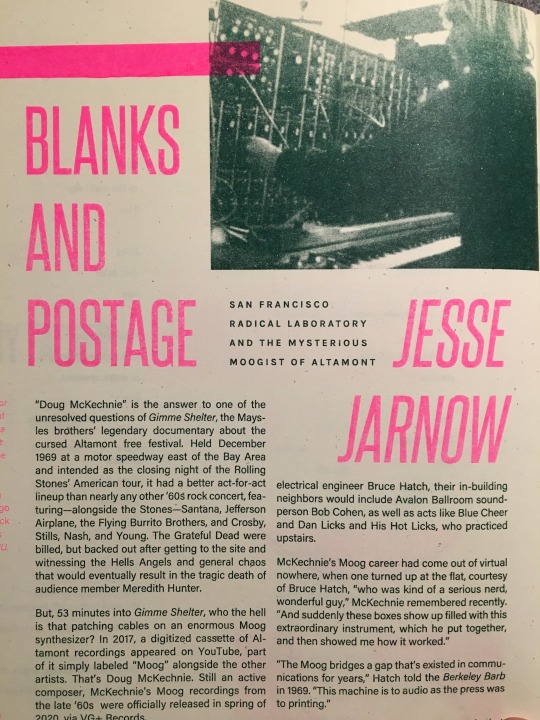
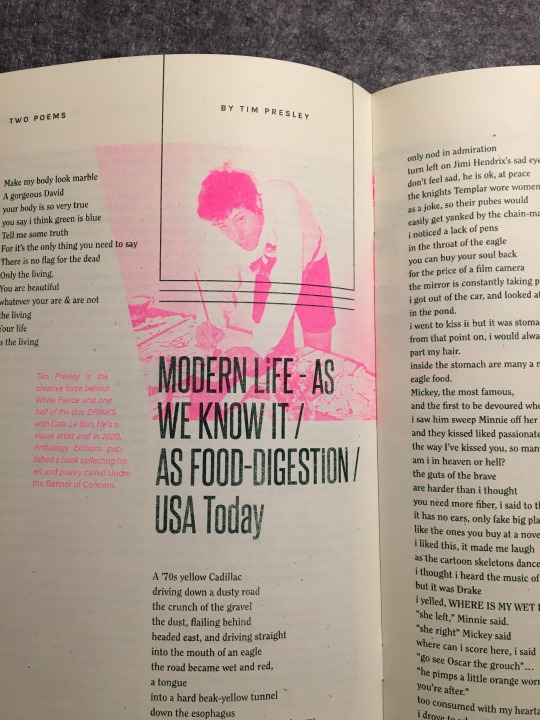
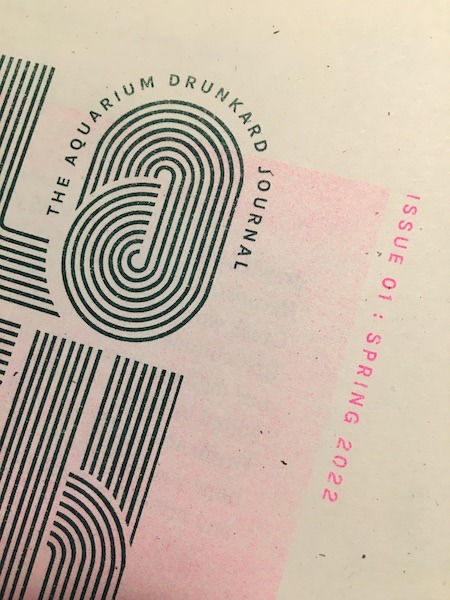
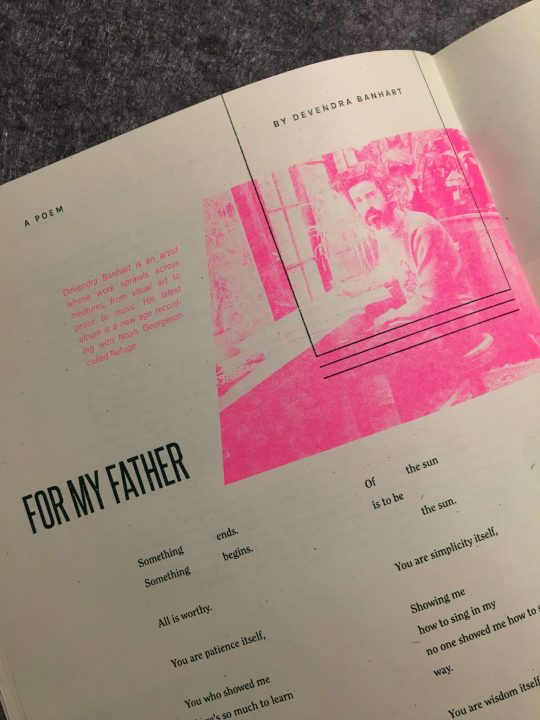
Philomath: The Aquarium Drunkard Journal | Issue 01, Spring 2022
Presenting Philomath: The Aquarium Drunkard Journal. Issue 01, Spring 2022. Featuring contributors include Tim Presley, William Tyler, Willy Vlautin, Devendra Banhart, Jesse Jarnow, and Jason P. Woodbury. Art by Denis Boudart, printed in collaboration with Cereal Box Studio. Only available at our Patreon.
6 notes
·
View notes
Text
2 notes
·
View notes
Text
rules: answer the questions and tag 9 people you want to get to know better or catch up with
Tagged by @a-brighter-yellow and @disgruntledkittenface :o)
️three ships: Louis and Harry, Tim and Lyla, Jax and Tara (Sons of Anarchy) *Honorable mention to Shawn and Belle from Days of Our Lives, the couple who introduced me ships.
last song: Currently watching their live stream so, Fitz and the Tantrums “Fools Gold”
currently craving: Cheese. Had prosecco at happy hour with the work crew and now want cheese.
last movie: I genuinely can’t remember. I showed a short version of The Cask of Amontillado to my students so we’ll go with that.
currently reading: "Wasn’t That a Time” by Jesse Jarnow at the suggestion of the great Tom Morello.
Tagging anyone who would like to participate!!
4 notes
·
View notes
Text
*Psychedelic Experience*
Secara bahasa kata Psychedelic berasal dari bahasa Yunani. Yang mana memiliki arti:
Psyche: Jiwa, Pikiran, Mental
Delic/Delein: Memanifestasikan, Mewujudkan, Merealisasikan
Secara Terminologi Psychedelic memiliki arti yaitu *Manifestasi Jiwa* atau *Vision of Mind*
Istilah Psychedelic sendiri berarti suatu keadaan kejiwaan dimana orang mengalami halusinasi dan hilang kesadaran akibat pengaruh dari luar, semisal obat-obatan.
Pada era 60an, para seniman menggunakan bantuan obat-obatan agar mencapai keadaan psychedelic, sehingga karya seni yang tercipta dinamakan seni psychedelic.
Arti psychedelic secara keseluruhan adalah sebuah hal/sifat yang berkaitan tentang mewujudkan pola pikir, menerjemahkan jiwa.
Psychedelic ialah kemampuan kita mem-visualisasikan apa yang ada dipikiran menjadi vision ( Penglihatan ), yang akan tersesat sangat nyata ( Efek Halusinasi ).
Pengalaman psychedelic sering dibandingkan dengan bentuk kesadaran seperti Trance ( Keadaan Tidak Sadar Diri ), Meditasi, Yoga, dan Bermimpi
Pendiri Apple Inc Steve Jobs pernah mengaku mengonsumsi narkotika jenis LSD (lysergyc acid diethylamide) ketika dia masih menjadi mahasiswa pada 1970-an. Pengakuannya itu diungkapkan Jobs kepada Walter Isaacson, penulis buku biografi Steve Jobs (2011).
“Mencoba LSD (lysergyc acid diethylamide) merupakan pengalaman yang berkesan. Salah satu hal penting yang terjadi dalam hidupku,” kata Jobs kepada Isaacson dalam Steve Jobs.
Selain Jobs, pendiri Microsoft Corporation Bill Gates juga mengaku pernah mengonsumsi LSD. Dia mengatakan hal itu dalam wawancaranya dengan majalah Playboy pada 1994. Namun, seperti yang dilansir dari laman Bussiness Insider edisi 15 Februari 2017, skrip wawancara dengan Gates tersebut telah ditarik Playboy.
LSD sendiri merupakan zat halusinogen yang populer di kalangan hippie dekade 1960-an hingga 1970-an. Dalam bukunya Sixties Rock: Garage, Psychedelic, and Other Satisfaction, Michael Hicks menyebut, LSD pertama kali ditemukan pada 1938 oleh Albert Hoffman. Obat ini awalnya dimanfaatkan untuk penelitian kesehatan mental. Penggunaannya untuk kepentingan kesehatan baru dimulai pada 1940-an.
Jesse Jarnow pernah menulis artikel berjudul “LSD now: How the psychedelic rennaisance changed acid” di Rolling Stone edisi Oktober 2016. Dia menulis, pada akhir 1950-an, LSD keluar dari laboratorium, terapis, dan militer ke kantung gerakan kebudayaan tandingan di Amerika Serikat.
Di Negeri Paman Sam sendiri, LSD merupakan barang ilegal dan jadi rebutan. Efek halusinasi saat memakai LSD melahirkan istilah psikedelik, yang pertama kali dicetuskan psikiater Humphry Osmond pada 1956.
Medio 1960-an, gaya hidup psikedelik berkembang di California, Amerika Serikat dan membentuk bagian dari kebudayaan pinggiran. Jesse Jarnow menulis, hal ini lantaran seorang ahli kimia otodidak Owsley Stanley, mulai memproduksi LSD dari jalur bawah tanah dalam jumlah masif.
Jarnow menyebut, dalam beberapa penelitian, LSD bisa menguntungkan sejumlah profesi, seperti musisi, ilmuwan, seniman, dan programer. LSD menjadi katalis yang kuat untuk mendorong kreativitas mereka.
4 notes
·
View notes
